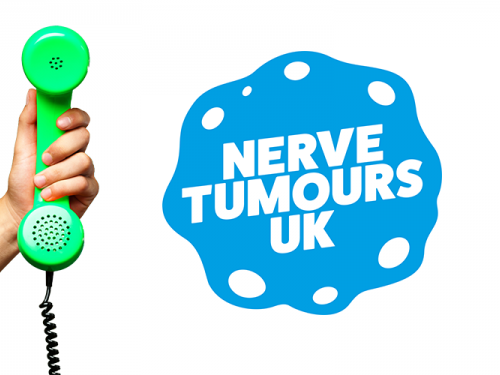Guidance on sudden hearing loss in NF2-related Schwannomatosis (NF2-SWN)
20 May 2024
One of the hallmark features of NF2-SWN are vestibular schwannomas, benign (non cancerous) tumours that grow on the hearing and balance nerve.
You have one of these nerves on each side of your brain: the cochlear portion carries information about sound (hearing) and the vestibular portion carries information about balance. Over time, vestibular schwannomas cause deafness, although the rate of hearing loss can be unpredictable and this also relates to whether you need any treatment for these tumours.
One of the things we manage in ear nose and throat (ENT) departments in NF2 and in the general population is sudden sensorineural hearing loss (SSNHL).
There are many causes for sudden hearing loss. Firstly, hearing loss can be caused by a conductive problem, such as wax blockage, trauma, an ear infection or fluid in the middle ear such as when you have a cold – all of these can stop sound travelling to the cochlea (the hearing organ) and lead to muffled or reduced hearing.
Sudden hearing loss can also be sensorineural, where either the hair cells inside the inner ear are damaged or where there has been damage to the hearing nerve. Sensorineural losses can relate to medication, some ear conditions such as Ménière’s disease, autoimmune ear disorders and vestibular schwannoma, or sometimes we do not know the cause. Therefore people with NF2 and vestibular schwannoma are at a high risk of sudden sensorineural hearing loss.
In the event of a sudden sensorineural hearing loss, there is only a small window where treatment can be attempted and therefore it is important that you seek medical review if this happens. To be considered sudden, we would expect the hearing loss to be rapid onset (starting within the last 72 hours rather than gradual) and for the hearing loss to be significant (on a hearing test, we would look for a decrease of at least 30dB over multiple frequencies).
The typical management for SSNHL is usually short course of oral steroids along with a stomach protecting medication, and/or a steroid injection through the ear drum into the middle ear. This treatment is not suitable in all cases and anyone experiencing SSNHL needs to be individually assessed.
If there is uncertainty about the level or significance of sudden hearing loss, it is still worth discussing this with your GP or NF2 team. Your GP should be able to look inside the ear for clinical signs of blockage or infection, and might be able to do a hearing test to establish the type of hearing loss, or they may refer you into a local ENT service for assessment.
Nerve Tumours UK will shortly be adding guidance for medical professionals in the Resources area on the website for how to manage NF2 patients under these circumstances.
Juliette Buttimore
Juliette has worked as a nurse practitioner for the NF2-related schwannomatosis and skull base service at the Cambridge Skull Base Unit since 2010.
She is co-lead for the NF2 service for the East of England/Midland region and works across ENT, clinical genetics, neurosurgery and neurology in order to support people with an NF2 diagnosis.




